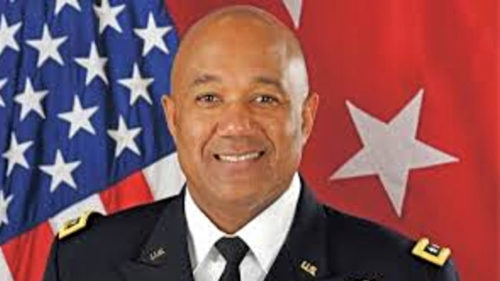By Associated Press

Lt. Gen. Darryl A. Williams will become the first black officer to command West Point in its 216-year history, academy officials announced Friday.
WEST POINT, N.Y. (AP) — Lt. Gen. Darryl A. Williams, a 1983 U.S. Military Academy graduate who has held high-ranking Army posts in Europe and Asia, will become the first black officer to command West Point in its 216-year history, academy officials announced Friday.
Williams will assume command as the academy’s 60th superintendent during a ceremony Monday morning in West Point’s Jefferson Hall, school officials said.
The native of Alexandria, Virginia, has served as the deputy chief of staff for the U.S. Army in Europe and the deputy commanding general for support for the 2nd Infantry Division in South Korea. Most recently Williams was commander of NATO’s Allied Land Command, based in Turkey.
West Point, founded in 1802 along the west bank of the Hudson River 50 miles (80 kilometers) north of New York City, didn’t graduate its first black cadet until the Reconstruction in 1877. No black cadet had graduated in the 20th century when Benjamin O. Davis Jr. arrived in there in 1932.
Davis ate alone, roomed alone and was shunned by fellow cadets because he was black. After graduating in 1936, he went on to command the Tuskegee Airmen during World War II and retired as an Air Force general in 1970. West Point recently named its newest cadet barracks for Davis…
Read entire article here
Read about more about Benjamin O. Davis here
Read about the Tuskegee Airmen here
Read more Breaking News here










Comments Are Welcome
Note: We moderate submissions in order to create a space for meaningful dialogue, a space where museum visitors – adults and youth –– can exchange informed, thoughtful, and relevant comments that add value to our exhibits.
Racial slurs, personal attacks, obscenity, profanity, and SHOUTING do not meet the above standard. Such comments are posted in the exhibit Hateful Speech. Commercial promotions, impersonations, and incoherent comments likewise fail to meet our goals, so will not be posted. Submissions longer than 120 words will be shortened.
See our full Comments Policy here.